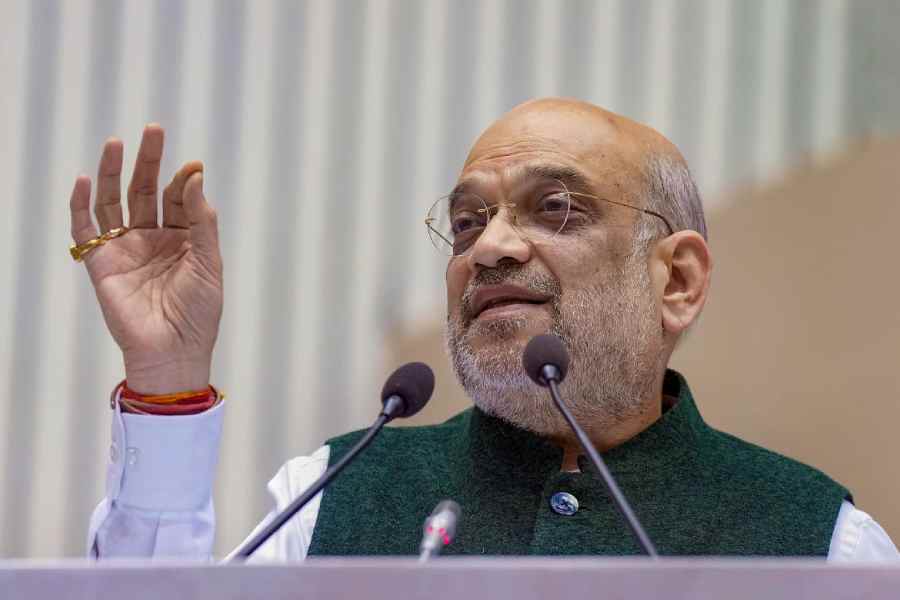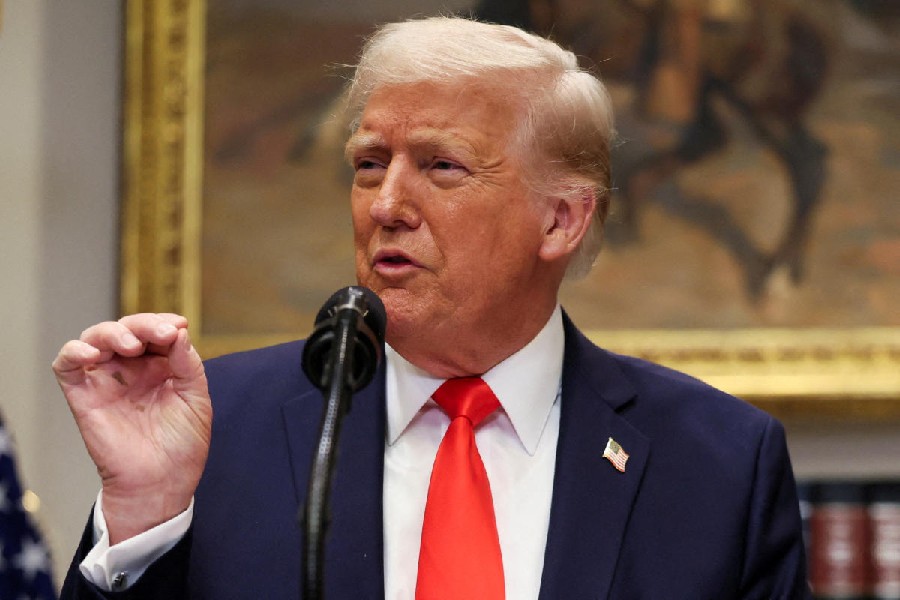Prime Minister Narendra Modi’s move to confer the Bharat Ratna on Bihar’s socialist icon Karpoori Thakur, 36 years after his death and just ahead of the general elections, is being seen by BJP insiders as an audacious attempt to usurp the legacy of the legendary OBC protagonist and nibble away the voter base of chief minister Nitish Kumar.
Thakur, twice chief minister of Bihar, was a staunch Lohiaite socialist whose politics and ideology ran against both the Sangh and the Congress; both groups have suddenly begun to compete to celebrate Thakur and claim his legacy.
Modi, brimming with confidence post the Ram temple inauguration, is eyeing a straight third term in power with record numbers in the Lok Sabha; excelling in Bihar is key to that ambition.
Bihar, on the current state of play with the JDU and the RJD allied, remains an outlier among northern heartland states. Modi and the BJP have been desperately looking for a narrative to make substantive inroads into the backward and extremely backward caste-dominated politics of the state.
“Modiji’s surprise move will shake not only Nitish and Lalu (Prasad) but the political landscape of Bihar. We are hopeful that the decision (to confer the Bharat Ratna on Thakur) will put pressure on Nitish Kumar to break away from the RJD, which doesn’t carry the legacy of Jan Nayak Karpoori Thakur,” a BJP leader said, indicating that Bihar may spring yet another surprise with Nitish essaying yet another somersault.
“Karpoori Thakur was against promoting dynasty and was committed to serving the most backward. Lalu and his party are only concerned about serving the interests of their family and the Yadavs and the Muslims,” the BJP leader added.
Conferring the Bharat Ratna on Thakur, a demand his legacy carriers Nitish and Lalu’s RJD have been pressing for long, came not as yet another government decision but as a carefully planned electoral manoeuvre. Most prominent newspapers reaching Bihari readers carried a long write-up by Modi, hailing the late socialist Thakur.
“He (Thakur) belonged to one of the most backward sections of society, the Nai Samaj,” Modi wrote, highlighting the “Nai” or the “barber” caste of the late leader and went on to underline his backward roots. “As a person belonging to the backward classes myself, I have much to thank Jan Nayak Karpoori Thakur Ji for. Unfortunately, we lost him when we needed him the most,” Modi wrote, aiming to counter the caste-survey politics brandished by Bihar chief minister Nitish Kumar.
Thakur is most remembered for his affirmative action to uplift the most deprived sections and Modi appeared to be eyeing the same sections.
More than a decade ahead of the Mandal Commission, Thakur as chief minister had implemented a path-breaking reservation system splitting the wider OBC category into two parts — OBC and EBC (Extremely Backward Classes). A larger share of 12 per cent was allotted for the EBCs and only 8 per cent was set out of the other OBCs out of a total quota of 26 per cent. In addition, Thakur allotted 3 per cent for women and another 3 per cent for economically backward classes from among the upper castes.
Decades later, Nitish sought to borrow from Thakur’s legacy by wooing EBCs in his bid to beat friend-turned-foe Lalu’s Mandal politics focused on the Muslim-Yadav vote base. After taking power in 2005, Nitish once again split the backward reservation pie in two parts, focusing on the EBCs and also implementing 50 per cent reservation for women in panchayats.
On Wednesday, speaking at an event to mark the centenary of Thakur, home minister Amit Shah claimed that Modi was inspired by the “Jan Nayak”. “Modiji’s move to give 10 per cent reservation to the economically backward among upper castes and 33 per cent to women along with many decisions for OBC welfare is praised across the country. But it was started in the 70s by Jan Nayak Karpooriji,” Shah said, adding that 27 ministers in Modi’s ministry, including Modi himself, hail from the backward classes.
“The biggest coincidence was that on January 22, Modiji did Ram Kaaj and on January 23, by conferring the Bharat Ratna on Jan Nayak Karpoori Thakur he did Garib Kaaj. He worked to connect Ram and the poor,” Shah said, going on to claim that Modi’s stress on Hindi and other regional languages was also inspired by the late socialist leader.
BJP leaders see the Karpoori-Bharat Ratna move as an aggressive effort to lay claim on the socialist leader’s legacy and make a grab on the EBCs who account for 36 per cent of Bihar’s population.
The BJP has been able to make inroads in the non-Yadav backward voters in neighbouring Uttar Pradesh but failed to do the same effectively in Bihar due to their dependence on Nitish when they have been allied, BJP leaders argue.
The BJP-JDU-LJP combine had swept the 2019 Lok Sabha polls in Bihar, winning 39 (BJP 17, JDU 16 and LJP 6) of the 40 seats in the state. This time, with Nitish not with them, Modi and the BJP fear that they may not be able to repeat the feat and so moves like the one on Karpoori Thakur.











